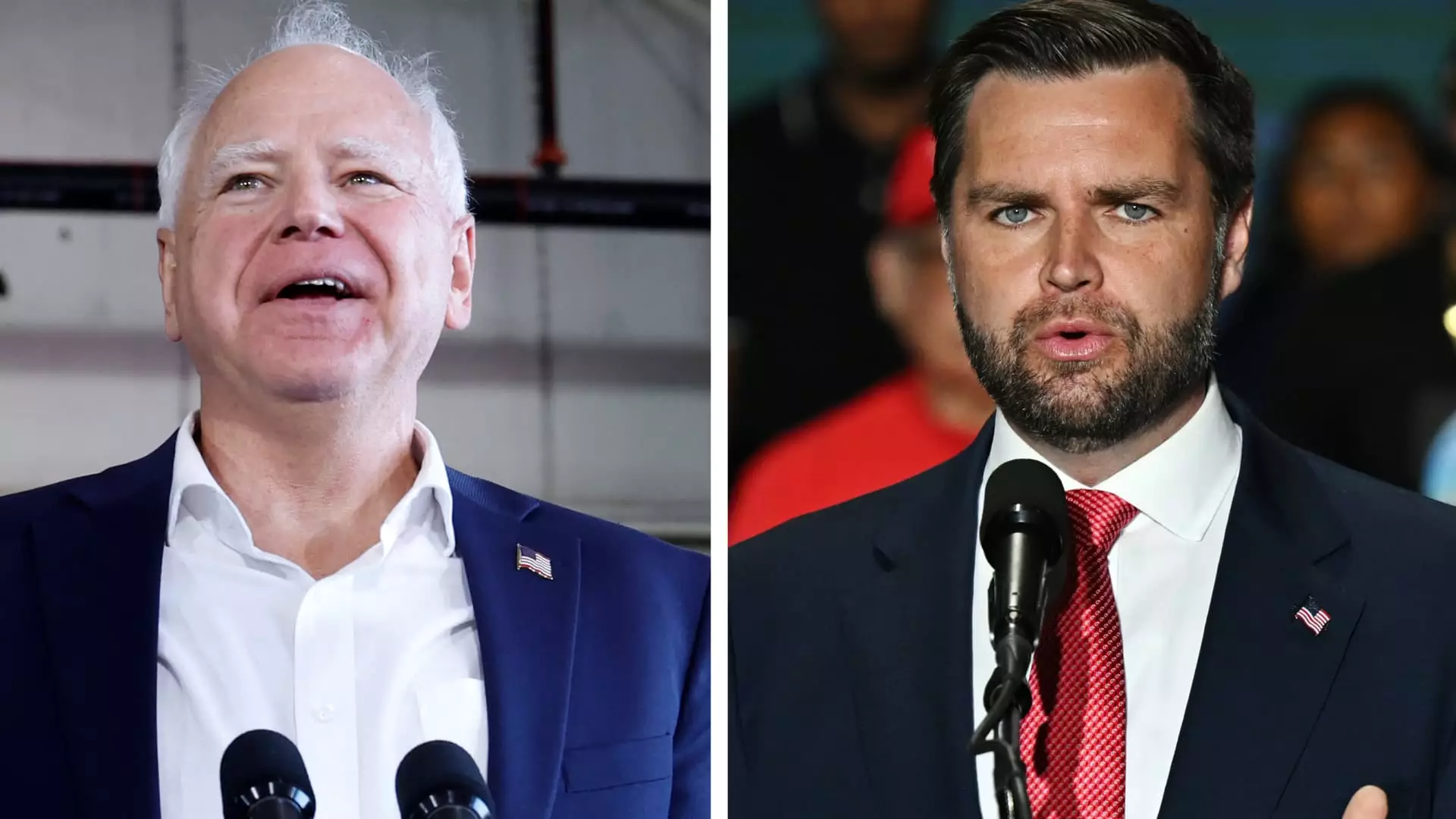As the major party tickets for the upcoming election have been confirmed, voters are turning their attention to the personal finance policies championed by the candidates, which could have a direct impact on their wallets. Vice President Kamala Harris has revealed her running mate as Minnesota Gov. Tim Walz, while former President Donald Trump has chosen Sen. JD Vance of Ohio. With less than 90 days to go until the election, both sets of candidates are engaging in class warfare, attempting to portray their opponents as disconnected from the middle-class Americans they aim to represent.
Affordable housing is a critical issue that resonates with many Americans, and both Walz and Vance have addressed it in their respective policy platforms. Whereas Walz signed housing legislation in 2023 that allocated funds for down payment assistance, housing infrastructure, and workforce housing, Vance has emphasized affordable housing as a key tool for addressing poverty. Vance has been vocal about opposing institutional ownership of rental homes and Chinese buyers in the U.S. real estate market, positioning himself as a proponent of affordable housing solutions.
The issue of the child tax credit, particularly its expansion, has been a point of contention between the candidates and their parties. While Congress passed a temporary expansion of the child tax credit, leading to a historic low child poverty rate, Minnesota enacted a refundable state-level child tax credit, which Walz hailed as a significant achievement. However, a permanent federal child tax credit expansion remains a challenge due to divided opinions in Congress and concerns over the federal budget deficit. Vance has expressed support for the child tax credit but has been critical of blanket student loan forgiveness policies, describing them as benefiting the wealthy and corrupt university administrators.
Vance’s stance on student loan forgiveness differs significantly from that of Walz. Vance has been outspoken against forgiving student debt, arguing that it primarily benefits the elite and wealthy, such as those in private equity. He has proposed legislation that would excuse parents from student loans if their child becomes permanently disabled. On the other hand, Walz, a former school teacher, has been more supportive of alleviating student loan debt burdens, signing programs into law that offer loan forgiveness for nurses and free tuition initiatives for low-income students.
The stark differences in personal finance policies between the candidates underscore the contrast in their approaches to addressing economic issues that impact middle-class Americans. While Vance emphasizes market-driven solutions and limited government intervention, Walz advocates for a more hands-on approach from the government to tackle issues such as affordable housing and student loan debt. The upcoming election will be crucial in shaping the future economic landscape of the country, with voters having to weigh the competing visions put forth by the candidates.

